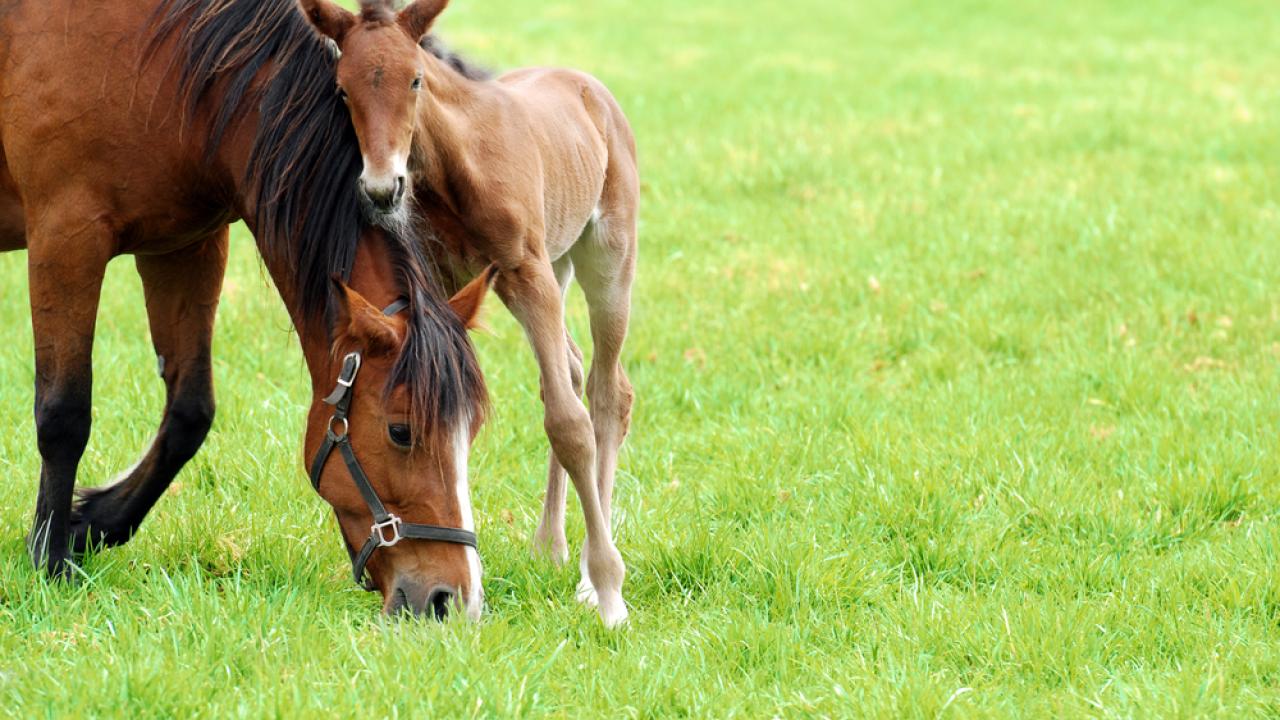
VGL parentage testing confirms rare event in equine reproduction
Delayed embryo development is a rare occurrence in horses. In collaboration with researchers at Colorado State University, results from UC Davis VGL parentage testing verified this rare finding in a donor Quarter Horse (QH) mare.
Mares typically produce a single egg per cycle. Given that the gestational length in horses is 11 months, embryo transfer has become a popular method for horse breeding that allows breeders to obtain more than one foal per year from their most valuable mares. Breeders are able to have their mares bred, retrieve a 6- to 8-day old embryo from their uterus, and transfer that embryo into a recipient mare that will carry the pregnancy to term. After an embryo is retrieved, the mare is able to cycle, be bred again and may produce an additional embryo that can then be transferred to a different recipient mare or be carried to term by the mare herself.
Following standard assisted reproductive technology procedures, an American Quarter Horse mare was inseminated by a stallion and an embryo retrieved at day 6. The mare returned to estrus (period of physiological changes allowing for egg release from the ovaries) 5 days later and a different stallion was used this time for insemination. After the second insemination event, two embryos of different sizes were identified and collected 8 days after ovulation and both were transferred into recipient mares. Parentage testing, based on collecting data from 30 microsatellite markers, confirmed the first stallion as the sire of one of the foals with zero exclusions, thus suggesting that either embryonic development was markedly delayed after fertilization or the first stallion's sperm survived quite a bit longer than expected in the donor mare fertilizing an egg from the second ovulation event.
This fascinating case points out the fact that events in nature cannot always be predicted”, says Dr. Patrick McCue from Colorado State University. "Cases like this reconfirm the need for the use of genetic testing to confirm breedings."
Dr. McCue is a Theriogenologist and the lead author on this study, which described two cases of delayed embryo development in donor mares. One case was the QH described above for which the VGL performed the parentage testing. Analysis and consultation for this case was performed by Dr. Rebecca Bellone, director of the Veterinary Genetics Laboratory. The second case was seen in an Arabian horse and parentage was confirmed by testing at Bureau Veritas.
To read more about this fascinating case report, visit https://doi.org/10.1111/evj.13936



